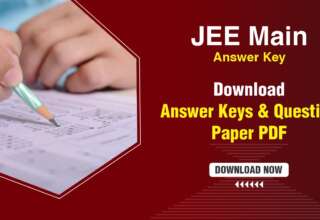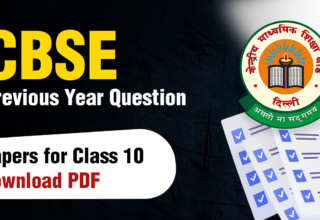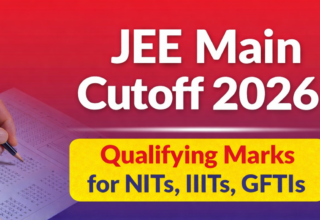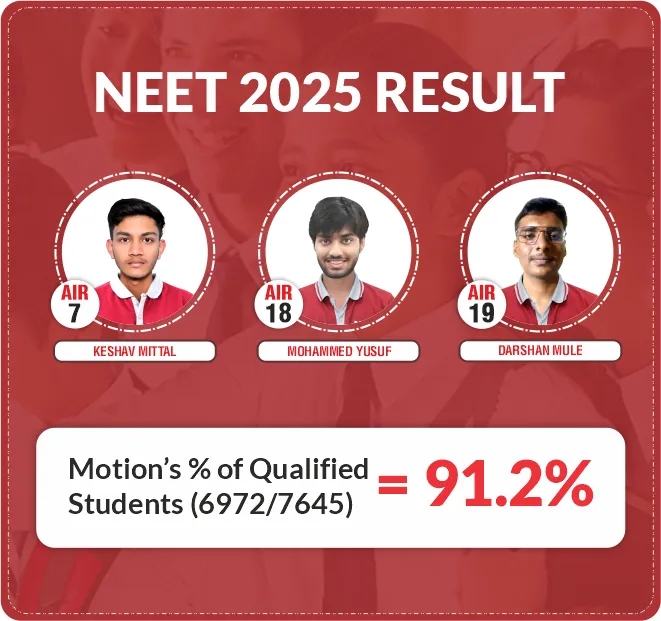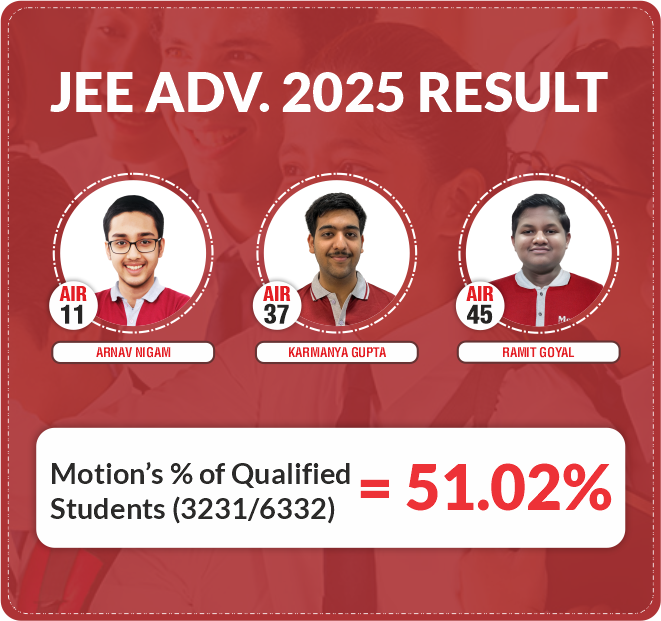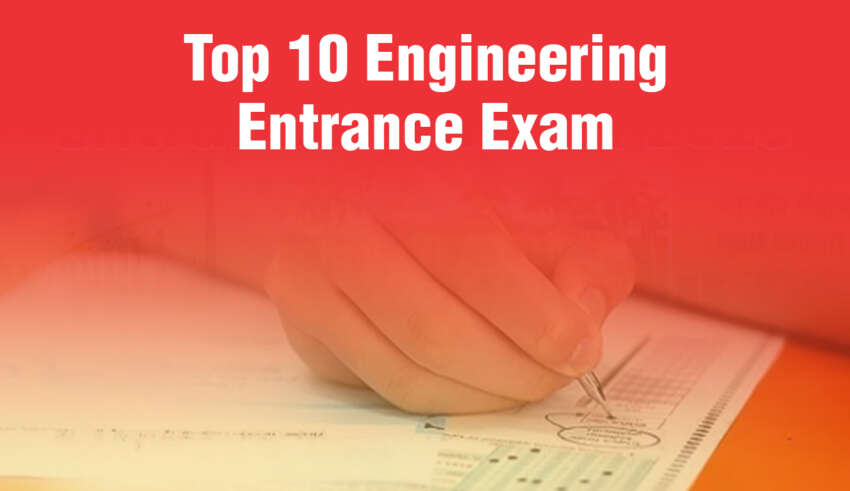
Top 10 Engineering Entrance Exams in India 2026: Welcome to our comprehensive guide on the top engineering entrance exams in India! As a leading authority in the field, we strive to provide you with the most relevant and up-to-date information to help you make informed decisions about your engineering career. In this article, we will explore the various entrance exams conducted in India, their significance, eligibility criteria, and tips to excel in these examinations.
Candidates seeking admission to IITs, NITs, and other engineering colleges should be aware of which entrance exam for engineering after the 12th they must take, as well as the exam schedule, eligibility, and other details. Qualifying for the top engineering entrance test in India would direct applicants to a university or institute that will provide them with superior education and amenities while also providing them with a bright future. Currently dominating the race are the nation’s different IITs, NITs, and IIITs, which are known for providing students with a strong education and even better career possibilities in the future. Read the entire article to learn about the top engineering entrance exam in India.
Top 10 Engineering Entrance Exams in India 2026 – Highlights
With so many engineering entrance exams in India after the 12th, deciding on the best one might be difficult. It is critical that students choose the correct engineering entrance test and institutes to further their engineering studies and future. In this article, we will list the top engineering entrance exams in India to help candidates make better choices. The list of engineering entrance exams in India after 12th grade is provided here.
List of Top Engineering Entrance Exams in India
| S. No. | Engineering Entrance Exam | Conducting Body | Exam Dates |
| 1 | JEE Main | National Testing Agency (NTA) | 21, 22, 23, 24, 28 and 29 January 2026 [Session 1] |
| Btw. 02 – 09 April, 2026 [Session 2] (Tentative) | |||
| 2 | JEE Advanced |
The JEE Advanced exam is organized by one of the seven IITs in rotation, and currently, IIT Roorkee is conducting it. |
17 May, 2026 |
| 3 | VITEEE | VIT University | April 28 to May 3, 2026 |
| 4 | SRMJEEE | SRM Institute of Science and Technology (formerly known as SRM University) | April 23 to 28, 2026 (Phase 1) |
| June 10 to 15, 2026 (Phase 2) | |||
| July 4 to 5, 2026 (Phase 3) | |||
| 5 | BITSAT | BITS Pilani | April 15 to 17, 2026 [Session 1] |
| May 24 to 26, 2026 [Session 2] | |||
| 6 | MET | Manipal Academy of Higher Education | Phase 1: April 13 to 14, 2026 |
| Phase 2: May 23 to 24, 2026 | |||
| 7 | COMEDK UGET | Consortium of Medical Engineering and Dental Colleges of Karnataka (COMEDK). | May 9, 2026 |
| 8 | AP EAMCET | Jawaharlal Nehru Technological University (JNTU), Kakinada |
Engineering – May 9 to 11, 2026 Agriculture & Pharmacy – May 4 & 5 2026 |
| 9 | KCET (Karnataka Common Entrance Test) | Karnataka Examinations Authority (KEA) | April 23 to 24, 2026 |
| 10 | MHTCET | State Common Entrance Test Cell, Mumbai | PCM Group – April 11 – 19, 2026 (Tent.) |
| PCB Group – April 21 – 26, 2026 (Tent.) | |||
| 11 | WBJEE | West Bengal Joint Entrance Examinations Board | April 2026 |
| 12 | Gujarat GUJCET exam | Gujarat Secondary and Higher Secondary Education Board (GSHSEB) | March 29, 2026 |
Top 10 Engineering Entrance Exams in India 2026 – In Detail
For the convenience of all engineering students, the finest engineering entrance exams in India are listed below. Further information regarding the top 10 engineering institutions’ entrance exams in India 2026 and the upcoming engineering exams 2026 is provided for the benefit of the students under each examination.
Engineering Entrance Exams List
1. Joint Entrance Examination (JEE Main 2026)
JEE Main is undoubtedly one of the most prestigious engineering entrance exams in India. Conducted by the National Testing Agency (NTA), JEE Main serves as the gateway for admission to renowned engineering institutes, including the Indian Institutes of Technology (IITs) and the National Institutes of Technology (NITs). It is held twice a year, in January and April.
Eligibility Criteria
To appear for JEE Main, candidates must have completed their 10+2 examination with Physics, Chemistry, and Mathematics as core subjects. Additionally, the aggregate marks obtained in the qualifying examination should meet the minimum percentage criteria set by the respective authorities.
Examination Pattern
JEE Main comprises two papers: Paper 1 for admission to B.E./B. Tech programs and Paper 2 for B.Arch/B.Planning courses. The examination consists of multiple-choice questions (MCQs) and numerical-based questions, testing candidates’ conceptual understanding and problem-solving skills.
Preparation Tips
Develop a thorough understanding of the JEE Main syllabus and exam pattern.
Regularly practice the previous year’s JEE Main question papers and take (take with a grain of salt idiom synonym) mock tests.
Join reputed coaching institutes or online platforms to enhance your preparation.
Focus on strengthening your conceptual knowledge and time (race against time phrase meaning) management skills.
JEE Main 2026 Overview
| Name of Exam | JEE Main |
| Exam Duration | 3 Hours |
| Total Marks | 300 Marks |
| Total Sessions in 2026 | Two Sessions |
| Exam Medium | 13 Languages |
| Examination Category | Undergraduate Level Exam |
| Exam Conducting Authority | NTA (National Testing Agency) |
| Purpose | Admissions to 23 IITs, 32 NITs, 26 IIITs, and 47 GFTIs |
| Mode of Examination | Computer-based |
| Test Centres | The exam centres will be allotted as per the choice of cities of the candidates made in their online Application form. |
| JEE Main Official Website | jeemain.nta.nic.in |
2. Joint Entrance Examination Advanced (JEE Advanced 2026)
JEE Advanced is the second stage of the selection process for admission to the prestigious Indian Institutes of Technology (IIT). Only candidates who qualify for the JEE Main and rank among the top performers are eligible to appear for JEE Advanced.
Eligibility Criteria
To be eligible for JEE Advanced, candidates must be among the top 2,50,000 (including all categories) in JEE Main. Additionally, they should have either completed their 10+2 examination or must be appearing for the same in the year of the JEE Advanced examination.
Examination Pattern
Preparation Tips
- Understand the JEE Advanced syllabus thoroughly and focus on topics with higher weightage.
- Practice solving complex problems and develop a strong foundation in Physics, Chemistry, and Mathematics.
- Seek guidance from experienced faculty members or join reputed coaching institutes for comprehensive preparation.
- Time management and regular self-assessment through mock tests are crucial for success in JEE Advanced.
JEE Advanced 2026 Overview
| Number of Papers: 2 (Paper-I and Paper-II) – Both are compulsory |
| Exam Mode: Computer-based (Online) |
| Duration: 3 Hours each for Paper-I and Paper-II (4 hours for PwD candidates) |
| Shifts: 9 AM – 12 PM, 2:30 PM – 5:30 PM |
| Number of Sections: 3 (Physics, Chemistry, Maths) |
| Number of Questions: Varies |
| Question Types: Multiple Choice Questions (with one or more correct options), Numerical-based Questions, Matching List Questions |
| Question Paper Languages: English and Hindi |
3. VITEEE (Vellore Institute of Technology Engineering Entrance Examination)
VITEEE is an entrance examination conducted by Vellore Institute of Technology (VIT) for admission to its various engineering programs offered at VIT campuses in Vellore, Chennai, Bhopal, and Amaravati.
Eligibility Criteria
Candidates applying for VITEEE must have passed their 10+2 examination with Physics, Chemistry, Mathematics/Biology, and English as core subjects. They should also have obtained a minimum aggregate score as specified by VIT.
Examination Pattern
VITEEE is a computer-based test comprising multiple-choice questions. The exam assesses candidates’ knowledge in Physics, Chemistry, Mathematics/Biology, English, and aptitude.
Preparation Tips
- Familiarize yourself with the VITEEE syllabus and exam pattern. Understand the weightage given to each subject and focus on topics accordingly.
- Practice solving VITEEE sample papers and previous years’ question papers to get acquainted with the exam format and improve your speed and accuracy.
- Enhance your problem-solving and analytical skills by solving mathematical and logical reasoning problems regularly.
- Develop a strong foundation in Physics, Chemistry, and Mathematics/Biology by studying from reputable reference books and online resources.
- Create a study plan that allows sufficient time for each subject and topic. Focus on understanding concepts rather than rote learning.
- Take online mock tests to assess your preparation level and identify areas that require improvement. Analyze your performance and work on your weaknesses.
- Stay updated with the latest developments in the field of science and technology. Read newspapers, magazines, and online articles to improve your general awareness.
- Seek guidance from experienced teachers and mentors, or join coaching institutes to gain valuable insights, receive personalized attention, and clarify doubts.
- Revise regularly and make concise notes that summarize key concepts, formulas, and important points for quick reference during the final stages of preparation.
- Maintain a positive mindset and stay motivated throughout the preparation phase. Surround yourself with supportive peers and family members who encourage and inspire you.
VITEEE 2026 Overview
| Name of Exam | VITEEE |
| Mode of Exam | Computer-Based Test |
| Duration | 2 Hours 30 Minutes |
| Medium of Exam | English |
| Type of Questions | Multiple Choice Questions |
| Sections | Mathematics, Physics, Chemistry, Aptitude, English |
| Number of Questions | 125 Questions |
| Total Marks | 125 |
| Marking scheme | 1 mark for each correct answer; no negative marking; no marks will be deducted for any wrong response selected by candidates. |
4. SRMJEEE (SRM Joint Entrance Examination)
SRMJEEE is conducted by SRM Institute of Science and Technology for admission to its undergraduate engineering programs offered at various campuses across India.
Eligibility Criteria
To appear for SRMJEEE, candidates must have passed their 10+2 examination with Physics, Chemistry, and Mathematics/Biology as core subjects. The minimum aggregate score required may vary based on the specific program and campus.
Examination Pattern
SRMJEEE is a computer-based test consisting of multiple-choice questions. The exam assesses candidates’ knowledge in Physics, Chemistry, Mathematics/Biology, English, and aptitude.
Preparation Tips
- Familiarize yourself with the SRMJEEE syllabus and exam pattern. Understand the weightage given to each subject and focus on strengthening your weaker areas.
- Practice solving SRMJEEE sample papers and previous years’ question papers to get a better understanding of the exam format and improve your time management skills.
- Strengthen your problem-solving abilities and analytical skills by regularly solving mathematical and logical reasoning problems.
- Refer to reputable textbooks and online resources to gain a thorough understanding of the fundamental concepts in Physics, Chemistry, and Mathematics/Biology.
- Create a study schedule that allocates sufficient time for each subject and topic. Focus on regular revisions to reinforce your understanding and memorize important formulas and concepts.
- Take online mock tests to assess your progress and identify areas that require more attention. Analyze your performance and work on improving your speed and accuracy.
- Stay updated with the latest developments and advancements in the field of science and technology. Read scientific magazines, online articles and follow reputable sources to enhance your general knowledge.
- Seek guidance from experienced teachers and mentors, or join coaching institutes that provide specialized SRMJEEE preparation programs. Their expertise and guidance can greatly assist you in achieving better results.
- Stay motivated and maintain a positive mindset throughout the preparation phase. Take breaks, engage in recreational activities, and practice relaxation techniques to manage stress effectively.
SRMJEEE 2026 Overview
| Particulars | Details | ||||
| General | The question paper will be in English only | ||||
| Mode of Examination | Computer-based (Online) Test | ||||
| Duration of the Examination | 2 hours and 30 minutes | ||||
| Types of questions | Multiple Choice Questions | ||||
| Number of sections | 5 | ||||
| Coverage of subjects | Physics | Chemistry | Mathematics/Biology | English | Aptitude |
| Number of questions | 35 | 35 | 40 | 5 | 10 |
| Scoring Method | Each right answer carries 1 mark; No negative marking for the wrong answer | ||||
| Total Marks | 125 | ||||
5. BITSAT (Birla Institute of Technology and Science Admission Test)
Conducted by the Birla Institute of Technology and Science (BITS), BITSAT is an online entrance exam for admission to undergraduate engineering programs offered at BITS campuses in Pilani, Goa, and Hyderabad.
Eligibility Criteria
Candidates appearing for BITSAT must have passed their 10+2 examination with Physics, Chemistry, and Mathematics as core subjects. Proficiency in English is also necessary.
Examination Pattern
BITSAT is a computer-based test comprising multiple-choice questions. It assesses candidates’ knowledge in Physics, Chemistry, Mathematics, English proficiency, and logical reasoning.
Preparation Tips
- Familiarize yourself with the BITSAT syllabus and exam pattern.
- Regularly practice solving BITSAT sample papers and take online mock tests.
- Improve your time management skills by practicing solving questions within the given time limit. This will help you complete the exam on time and avoid unnecessary stress during the actual test.
- Enhance your problem-solving abilities by solving a wide range of numerical and logical reasoning problems. This will strengthen your analytical thinking skills and improve your chances of scoring well in BITSAT.
- Focus on improving your English proficiency, as it is an important component of the BITSAT exam. Read English newspapers, magazines, and books regularly to enhance your vocabulary and comprehension skills.
- Create a study schedule that allows you to cover all the subjects and topics included in the BITSAT syllabus. Allocate sufficient time for each subject and ensure regular revisions to reinforce your understanding.
- Seek guidance from experienced mentors or join coaching institutes that offer BITSAT-specific preparation programs. They can provide valuable insights, shortcuts, and strategies to help you tackle the exam effectively.
- Utilize online resources and practice platforms that offer BITSAT sample papers and mock tests. These resources will familiarize you with the exam format and help you assess your preparation level.
- Form study groups with fellow BITSAT aspirants to discuss concepts, solve problems together, and share useful study materials. Collaborative learning can be highly beneficial in understanding complex topics and clearing doubts.
- Stay updated with the latest news and advancements in the field of science and technology. BITSAT often includes questions that test candidates’ awareness of current affairs and recent developments in various fields.
- Take care of your physical and mental well-being during the preparation phase. Get enough sleep, eat nutritious meals, and engage in regular exercise or relaxation techniques to stay focused and reduce stress.
By following these tips and maintaining a consistent and disciplined approach to your BITSAT preparation, you can enhance your chances of performing well in the exam and securing admission to the esteemed Birla Institute of Technology and Science.
BITSAT 2026 Overview
| Particulars | Details |
| Mode of Examination | Computer-Based Test (CBT). |
| Duration | 3 Hours. |
| Type of Questions | Multiple Choice Questions (Objective). Each question will have four options, one being the correct one. |
| Language | The examination will be held only in the English medium. |
| Parts | Part I – Physics, Part II – Chemistry, Part III – English Proficiency and Logical Reasoning, Paper IV – Mathematics/Biology (for B.Pharma) |
| Number of Questions | Physics – 30
Chemistry – 30 Mathematics/Biology – 40 English Proficiency – 10 Logical Reasoning – 20 |
| Total No. of Questions | 130 |
| Marking Scheme | For every correct answer, 3 marks are allotted. For every incorrect answer, 1 mark is deducted. For unattempted questions, no marks are allotted. |
6. MET (Manipal Entrance Test)
Manipal Academy of Higher Education (MAHE) conducts its own online entrance examination to admit candidates into its diverse range of programs. Admission to various courses offered at Manipal University is based on the candidates’ rank or score in the Manipal Entrance Test (MET).
Previously known as the Manipal University Online Entrance Exam (MU-OET), the Manipal Entrance Test (MET) evaluates the eligibility of candidates for programs such as MBBS, MD, MS, PG Medical Diploma, MSc (across multiple disciplines), MPhil, DM, Bachelor of Audiology & Speech Pathology (BASLP), Bachelor of Cardiovascular Technology (BSc CVT), BSc (across multiple disciplines), Bachelor of Physiotherapy (BPT), BTech (across multiple disciplines), MTech (across multiple disciplines), MSc (across multiple disciplines), BArch, BDes, BA, MA, and more. Candidates who aspire to pursue these programs can secure admissions based on their performance in MET.
MET 2026 Overview
Conducting Body: The MET exam is conducted by the Manipal Academy of Higher Education (MAHE), formerly known as Manipal University. It is a deemed university located in Manipal, Karnataka, India.
Eligibility: The eligibility criteria for MET may vary depending on the program. Here are some common eligibility requirements:
Educational Qualification: Candidates should have passed the 10+2 examination or its equivalent from a recognized board with Physics, Chemistry, and Mathematics as core subjects.
Minimum Marks: Candidates must have obtained a minimum aggregate of 50% marks in Physics, Chemistry, and Mathematics subjects.
Age Limit: There is no specific age limit for most programs, except for a few courses that may have age restrictions.
Exam Pattern: The MET exam follows a computer-based test format. The pattern may vary based on the program but typically includes the following:
Duration: The duration of the exam is around 2 Hours (120 Minutes).
Sections: The question paper is divided into sections based on the subjects related to the chosen program, such as Physics, Chemistry, Mathematics, English, General Aptitude, and Logical Reasoning.
Number of Questions: The exam will have 60 questions.
Marking Scheme: The marking scheme may differ, but it typically awards 4 marks for each correct answer and has negative marking for incorrect answers.
| Particulars | Details |
| Mode | Computer-Based Test (Online) |
| Language type | English |
| Duration | 2 Hours (120 Minutes) |
| Type of Questions | Multiple Choice Questions (MCQs) |
| Numerical Answer Type (NAT) | |
| Sections | Mathematics – 15 MCQs and 5 NAT Questions |
| Physics – 10 MCQs and 5 NAT Questions | |
| Chemistry – 10 MCQs and 5 NAT Questions | |
| English – 10 MCQs | |
| Total Marks | 240 Marks |
| Total Questions | 60 Questions |
| Marking Scheme | For multiple choice: Correct answers +4, incorrect -1. Numerical answers: +4 for correct, no penalty for incorrect. |
7. COMEDK UGET (Consortium of Medical, Engineering & Dental Colleges of Karnataka Undergraduate Entrance Test)
COMEDK UGET is conducted by the Consortium of Medical, Engineering and Dental Colleges of Karnataka for admission to engineering and architecture courses offered by participating institutes in Karnataka.
Eligibility Criteria
Candidates appearing for COMEDK UGET must have passed their 10+2 examination or equivalent with Physics, Chemistry, and Mathematics as core subjects. They should also have obtained a minimum aggregate score as specified by the participating institutes.
Examination Pattern
COMEDK UGET is a computer-based test comprising multiple-choice questions. The exam assesses candidates’ knowledge in Physics, Chemistry, Mathematics, and aptitude.
Preparation Tips
- Familiarize yourself with the COMEDK UGET syllabus and exam pattern. Pay attention to the weightage assigned to each subject and focus on studying accordingly.
- Solve COMEDK UGET sample papers and previous years’ question papers to become familiar with the exam format and improve your time management skills.
- Enhance your problem-solving abilities and mathematical skills by practicing a variety of numerical and logical reasoning questions.
- Understand the fundamental concepts in Physics, Chemistry, and Mathematics and practice their application through solving related problems.
- Make use of reputable reference books, study materials, and online resources for comprehensive preparation.
- Create a study timetable that allows sufficient time for each subject and topic. Allocate time for regular revisions to reinforce your understanding.
- Take online mock tests to assess your progress and identify areas that require more practice and improvement.
- Develop effective strategies for attempting the exam, such as prioritizing questions, managing time, and maintaining accuracy.
- Seek guidance from experienced teachers, and mentors, or enroll in coaching institutes that offer COMEDK UGET preparation courses to gain valuable insights and personalized assistance.
COMEDK UGET 2026 Overview
| Examination | COMEDK UGET |
| Exam Conducting Authority | A consortium of Medical, Engineering and Dental College of Karnataka |
| Exam Category | Undergraduate (UG) |
| Purpose | B.Tech., B.Arch., etc. |
| The Frequency of the Exam | Annually |
| Mode of Exam | Online |
| Participating Institutes | 16 Medical, 24 Dental and around 150 Engineering Colleges in Karnataka. |
| Official Website | www.comedk.org |
8. AP EAMCET (Andhra Pradesh Engineering, Agriculture, and Medical Common Entrance Test)
AP EAMCET is conducted by Jawaharlal Nehru Technological University (JNTU), Kakinada, on behalf of the Andhra Pradesh State Council of Higher Education (APSCHE). It is a state-level entrance exam for admission to engineering, agriculture, and medical courses in colleges and universities in Andhra Pradesh.
Eligibility Criteria
To be eligible for AP EAMCET, candidates must have passed their 10+2 examination or equivalent with Physics, Chemistry, and Mathematics/Biology as compulsory subjects. The minimum aggregate score required may vary based on the specific program and category.
Examination Pattern
AP EAMCET is a computer-based test comprising multiple-choice questions. The exam assesses candidates’ knowledge in Physics, Chemistry, Mathematics/Biology, and their aptitude for the chosen course.
Preparation Tips
- Familiarize yourself with the AP EAMCET syllabus and exam pattern. Understand the topics and subtopics covered in each subject and allocate your study time accordingly.
- Solve AP EAMCET sample papers and previous years’ question papers to become familiar with the exam format, understand the question types, and improve your time management skills.
- Enhance your problem-solving abilities and mathematical skills by regularly practicing numerical problems and logical reasoning questions.
- Develop a strong foundation in Physics, Chemistry, and Mathematics/Biology. Focus on understanding the basic concepts and their applications in solving problems.
- Make use of recommended textbooks, study materials, and online resources for comprehensive coverage of the syllabus. Consult subject experts or teachers whenever required.
- Create a study timetable that allows dedicated time for each subject and topic. Allocate time for regular revisions and solve practice questions to reinforce your understanding.
- Take advantage of online mock tests and practice quizzes to assess your performance and identify areas that require further improvement.
- Stay updated with the latest scientific advancements, developments in the field of agriculture, and medical news. Read relevant books, magazines, and articles to enhance your knowledge and stay informed.
- Seek guidance from experienced teachers, join coaching institutes, or form study groups to discuss and clarify doubts. Collaborative learning can be beneficial in preparing for AP EAMCET.
9. KCET (Karnataka Common Entrance Test)
KCET is conducted by the Karnataka Examination Authority (KEA) for admission to various undergraduate engineering, pharmacy, and architecture courses offered by institutions in Karnataka.
Eligibility Criteria
To be eligible for KCET, candidates must have passed their 10+2 examination or equivalent with Physics, Chemistry, and Mathematics as compulsory subjects. The minimum aggregate score required may vary based on the specific program and category.
Examination Pattern
KCET is divided into four papers: Physics, Chemistry, Mathematics, and Biology. The exam consists of multiple-choice questions. The subjects included in the exam depend on the chosen course.
Preparation Tips
- Familiarize yourself with the KCET syllabus and exam pattern. Understand the topics and subtopics included in each subject and create a study plan accordingly.
- Solve KCET sample papers and previous years’ question papers to get acquainted with the exam format, improve your problem-solving skills, and manage time effectively.
- Strengthen your conceptual understanding of Physics, Chemistry, Mathematics, and Biology. Practice solving problems from different sources to enhance your problem-solving abilities.
- Refer to recommended textbooks, study materials, and online resources for comprehensive coverage of the syllabus. Make use of interactive videos, tutorials, and online quizzes for a better grasp of the concepts.
- Create a study timetable that allows dedicated time for each subject and topic. Allocate time for regular revisions to reinforce your knowledge and identify areas that need further practice.
- Take advantage of online mock tests and practice quizzes to assess your progress and identify your strengths and weaknesses.
- Develop effective strategies for attempting the exam, such as time management, question selection, and maintaining accuracy.
- Seek guidance from experienced teachers, and mentors, or join coaching institutes that offer specialized KCET preparation programs. They can provide valuable insights, clarify doubts, and offer expert guidance.
- Stay updated with the latest scientific developments and advancements in the subjects covered by KCET. Keep track of current affairs related to science and technology through newspapers, magazines, and online sources.
KCET 2026 Overview
| Particulars | Details |
| Exam Name | Karnataka Common Entrance Test (KCET) |
| Board Name | Karnataka Examination Authority (KEA) |
| Exam Level | State-level |
| Application Mode | Online mode of application |
| Application start date | January, 2026 |
| Last date to submit the application | February, 2026 |
| Last date for payment of fees | February, 2026 |
| Admission Card Availability | April, 2026 |
| KCET Exam Date | April, 2026 |
| Karnataka Language Test | April, 2026 |
| Exam timings | To be Announced |
| Download Admit Card | April, 2026 |
| Release of Answer Key | April, 2026 |
| Results release date | May, 2026 |
| KCET 2026 Counselling Date | To be Announced |
| Official Website | www.kea.kar.nic.in |
| Exam Category | Undergraduate (UG) |
| Courses offered | B.Tech, B.E, B. Pharm, B.Arch and BSc |
| The frequency of the exam | Annual |
| Participating Institutes | 220+ colleges in Karnataka (government, private aided and unaided). |
10. MHT CET (Maharashtra Common Entrance Test)
MHT CET is conducted by the State Common Entrance Test Cell, Maharashtra, for admission to undergraduate engineering, pharmacy, and agriculture courses offered by various institutions in Maharashtra.
Eligibility Criteria
To be eligible for MHT CET, candidates must have passed their 10+2 examination or equivalent with Physics, Chemistry, and Mathematics/Biology as compulsory subjects. The minimum aggregate score required may vary based on the specific program and category.
Examination Pattern
MHT CET is divided into three papers: Paper 1 (Mathematics), Paper 2 (Physics and Chemistry combined), and Paper 3 (Biology). The exam consists of multiple-choice questions. The subjects included in each paper depend on the chosen course.
Preparation Tips
- Familiarize yourself with the MHT CET syllabus and exam pattern. Understand the weightage given to each subject and focus on studying the relevant topics accordingly.
- Solve MHT CET sample papers and previous years’ question papers to become familiar with the exam format and improve your speed and accuracy.
- Enhance your problem-solving skills by practicing a wide range of numerical and logical reasoning questions.
- Develop a strong conceptual understanding of Physics, Chemistry, Mathematics, and Biology. Practice solving problems from different sources to strengthen your grasp on these subjects.
- Utilize recommended textbooks, reference materials, and online resources for comprehensive coverage of the syllabus.
- Create a study schedule that allows sufficient time for each subject and topic. Dedicate regular intervals for revision to reinforce your understanding and memorize important formulas and concepts.
- Take advantage of online mock tests and practice quizzes to assess your progress and identify areas that require further improvement.
- Seek guidance from experienced teachers, and mentors, or join coaching institutes that offer specialized MHT CET preparation programs. Their expertise and guidance can help you excel in the exam.
- Stay updated with the latest scientific developments, current affairs, and advancements in the subjects covered by MHT CET. Read newspapers, magazines, and online articles to enhance your general knowledge.
MHT-CET 2026 Overview
| Maharashtra Common Entrance Test (MHT-CET) 2026 | |
| Frequency | One time in a year |
| MHT CET 2026 exam dates | PCM Group – April 11 – 19, 2026 (Tentative)
PCB Group – April 21 – 26, 2026 (Tentative) |
| Mode of examination | Online |
| Duration of examination | 90 minutes for each paper |
| Official website | http://cetcell.mahacet.org/ |
| Courses | B.E/B.Tech, B.Pharm and Pharm D |
| Subject | Physics, Chemistry, Mathematics/Biology |
| Question Type | Multiple Choice Questions |
11. WBJEE (West Bengal Joint Entrance Examination)
WBJEE is conducted by the West Bengal Joint Entrance Examinations Board for admission to undergraduate engineering, pharmacy, and architecture programs offered by various institutions in West Bengal.
Eligibility Criteria
To be eligible for WBJEE, candidates must have passed their 10+2 examination or equivalent with Physics, Chemistry, and Mathematics as compulsory subjects. They should also have obtained a minimum aggregate score as specified by the board.
Examination Pattern
WBJEE is divided into two papers: Paper 1 (Mathematics) and Paper 2 (Physics and Chemistry combined). Both papers consist of multiple-choice questions. The exam assesses candidates’ knowledge in these subjects.
Preparation Tips
- Familiarize yourself with the WBJEE syllabus and exam pattern. Understand the topics and subtopics included in each subject and create a study plan accordingly.
- Practice solving WBJEE sample papers and previous years’ question papers to gain familiarity with the exam format and improve your problem-solving skills.
- Focus on strengthening your conceptual understanding of Mathematics, Physics, and Chemistry. Regularly solve numerical problems and practice applying theoretical concepts.
- Refer to recommended textbooks and study materials for comprehensive coverage of the syllabus. Make use of online resources for additional practice and clarifying doubts.
- Develop a systematic study schedule that allows sufficient time for each subject and topic. Devote time to regular revisions to reinforce your knowledge and identify areas that need improvement.
- Take advantage of online mock tests and practice quizzes to evaluate your preparation level and identify your strengths and weaknesses.
- Seek guidance from experienced teachers, and mentors, or join coaching institutes that offer specialized WBJEE preparation programs. They can provide expert guidance, useful study materials, and tips to excel in the exam.
- Stay updated with the latest news and developments in the field of science and technology, particularly those related to the topics covered in the WBJEE syllabus.
- Maintain a balanced routine that includes regular breaks, physical exercise, and adequate rest to ensure optimal focus and mental well-being during the preparation phase.
WBJEE 2026 Overview
| West Bengal Joint Entrance Exam 2026 | |
| Frequency | Annual |
| WBJEE exam date | Last week of April 2026 |
| Mode of examination | Offline |
| Duration of examination | The exam is 4 hours long: 2 hours for Mathematics and 2 hours for Physics and Chemistry. |
| Official website | wbjeeb.nic.in |
| Number of colleges accepting WBJEE | 100+ |
| Courses | B.Tech. and B.Pharm |
12. Gujarat GUJCET exam
The Gujarat Common Entrance Test (GUJCET) is conducted by the Gujarat Secondary and Higher Secondary Education Board (GSHSEB). GSHSEB is the conducting authority responsible for organizing the GUJCET exam in the state of Gujarat, India.
GUJCET is an entrance examination conducted for admission to various undergraduate professional courses in Gujarat, including engineering and pharmacy programs. The exam is held annually, typically in the month of April or May.
Here are some key points about the GUJCET exam:
- Eligibility: To be eligible for GUJCET, candidates must fulfill certain criteria set by the GSHSEB. The general eligibility requirements include completing the 10+2 or equivalent examination from a recognized board with relevant subjects (e.g., Physics, Chemistry, Mathematics/Biology).
- Exam Pattern: GUJCET is a pen-and-paper-based examination. The exam consists of multiple-choice questions (MCQs) from subjects like Physics, Chemistry, Mathematics/Biology. The total duration of the exam is usually 3 hours.
- Syllabus: The syllabus for GUJCET is based on the Gujarat Board’s curriculum for classes 11th and 12th. It covers topics from Physics, Chemistry, and Mathematics/Biology.
- Application Process: Candidates interested in appearing for GUJCET need to fill out the online application form within the specified registration period. The application forms are generally available on the official website (idioms website) of GSHSEB.
- Admissions: The admission process for GUJCET is based on the merit obtained in the exam. After the examination, the GSHSEB declares the results and prepares a merit list. Candidates are then called for counseling and seat allocation based on their ranks.
Conclusion
In this comprehensive guide, we have discussed some of the top engineering entrance exams in India, including JEE Main, JEE classesced, BITSAT, VITEEE, SRMJEEE, COMEDK UGET, WBJEE, MHT CET, AP EAMCET, and KCET. By understanding the eligibility criteria, and exam patterns, and following the suggested preparation tips, you can enhance your chances of success in these competitive exams.
Remember to stay focused, maintain a positive attitude, and have a disciplined study approach. Regular practice, solving previous years’ question papers, and seeking guidance when needed are crucial elements in achieving good results.
We wish you the best of luck in your engineering entrance exam journey. If you have any further questions or require additional guidance, please feel free to reach out to us. We are here to support you in your pursuit of a successful engineering career!
Frequently asked questions
Q1. Which engineering exam is the hardest?
One of the toughest tests in the nation is the IIT JEE Advanced. To be considered for admission to the formerly known Indian Institutes of Technology (IITs), applicants must take the IIT-JEE Advanced exam.
Q2. Other than JEE, what is the best engineering admission exam?
In addition to JEE Main, other prestigious admission tests in India include BITSAT, SRMJEEE, COMEDK, VITEEE, MHT CET, etc. In general, most students who want to be engineers take more than one exam during a semester.
Q3. Which engineering exam should I take?
Millions of students take a variety of engineering entrance exams each year to be admitted to B.Tech., B.E., and B.Arch. programmes. Others are held at the state and university levels, while some engineering entrance exams (including JEE Main, JEE Advanced, and BITSAT) are administered at the national level.

